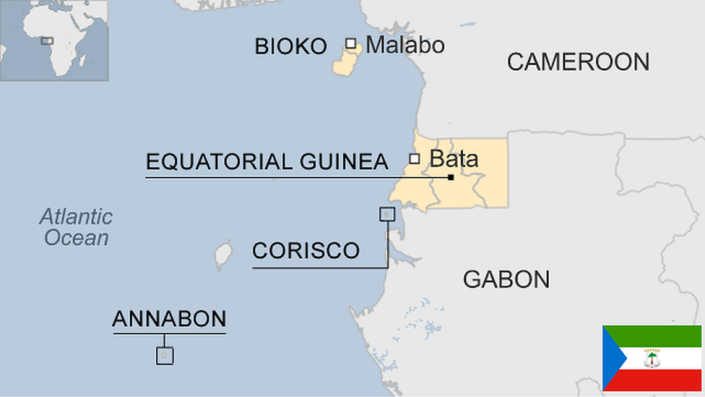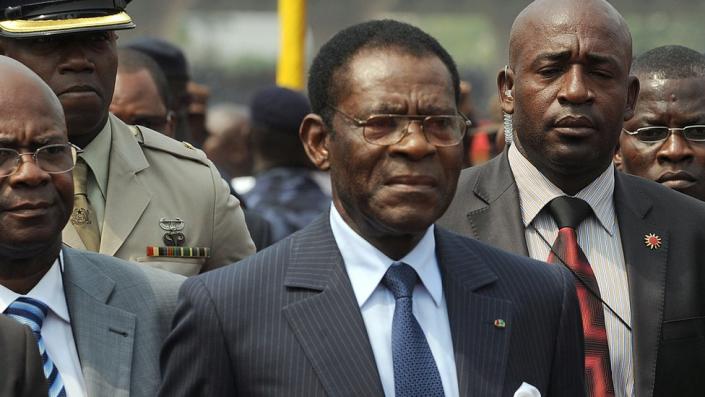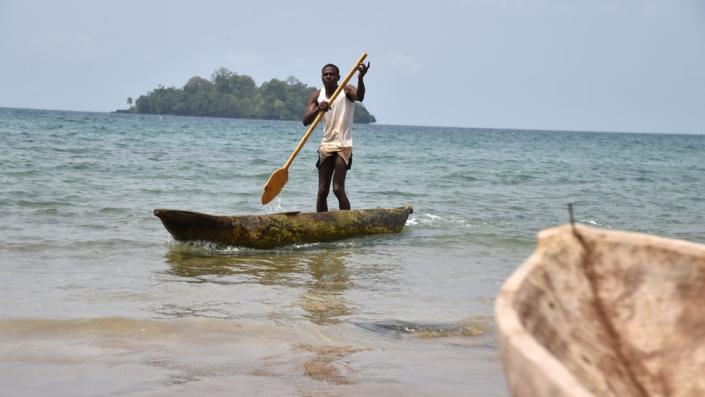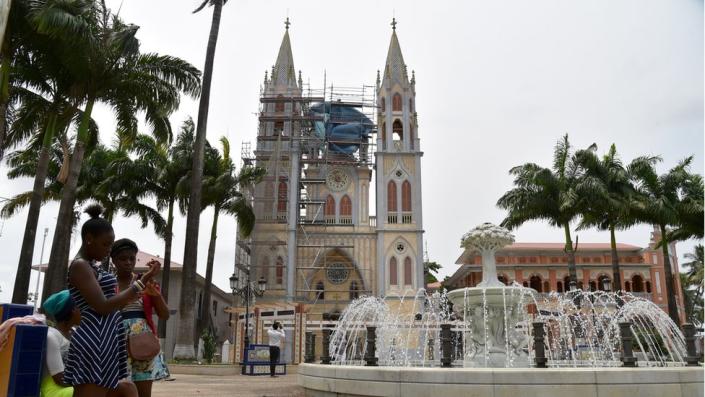Equatorial Guinea country profile
- Oops!Something went wrong.Please try again later.
- Teodoro Obiang Nguema MbasogoEquatoguinean politician, President of Equatorial Guinea since 1979

Equatorial Guinea is a small country on the west coast of Africa which struck oil in 1995, and which is now being cited as a textbook case of the resource curse - or the paradox of plenty.
It is made up of a mainland territory called Rio Muni, and five islands including Bioko, where the capital Malabo is located.
Since the mid 1990s. the former Spanish colony has become one of sub-Sahara's biggest oil producers, but a large proportion of the population still lives in poverty.
Rights organisations have described the two post-independence leaders as among the worst abusers in Africa.
First President Francisco Macias Nguema's reign of terror, from independence in 1968 until his overthrow in 1979, prompted a third of the population to flee.
Read more country profiles - Profiles by BBC Monitoring
FACTS
![Equatorial Guinea. Capital: Malabo [ Population 1.4 million ],[ Area 28,100 sq km (10,800 sq miles) ],[ Major languages Spanish, French, Portuguese ],[ Major religion Christianity ],[ Life expectancy 58 years ],[ Currency Central African franc ], Source: Source: World Bank, World Atlas, Image: The Cathedral of Saint Isabela in central Malabo](https://s.yimg.com/ny/api/res/1.2/tTCmCNYOdDF3VBw5qqEpFA--/YXBwaWQ9aGlnaGxhbmRlcjt3PTcwNTtoPTgyOA--/https://media.zenfs.com/en/bbc_us_articles_995/57d65ddf362a722d1bcabf2b9c5ea35f)
LEADER: Teodoro Obiang Nguema

President Obiang Nguema is Africa's longest serving leader, and has been described by rights organisations as one the continent's most brutal dictators.
He seized power from his uncle in 1979, and seems intent on continuing the dynasty - his son Teodoro Nguema Obiang is vice-president.
MEDIA

Equatorial Guinea's media outlets are closely controlled by the government. There are few private publications.
TIMELINE
Some key dates in Equatorial Guinea's history:

1471 - Portuguese navigator Fernao do Po sights the island of Fernando Poo, which is now called Bioko.
1777 - Portuguese cedes islands of Annobon and Fernando Poo as well as rights on the mainland coast to Spain, giving it access to a source of slaves.
1968 - Spanish Guinea granted independence and becomes the Republic of Equatorial Guinea with Francisco Macias Nguema as president.
1979 - Nephew Teodoro Obiang Nguema Mbasogo seizes power in a military coup.
1996 - Mobil oil corporation announces it has discovered sizeable new oil and gas reserves.
2004 - Coup plot foiled after a plane load of mercenaries is intercepted in Zimbabwe.

